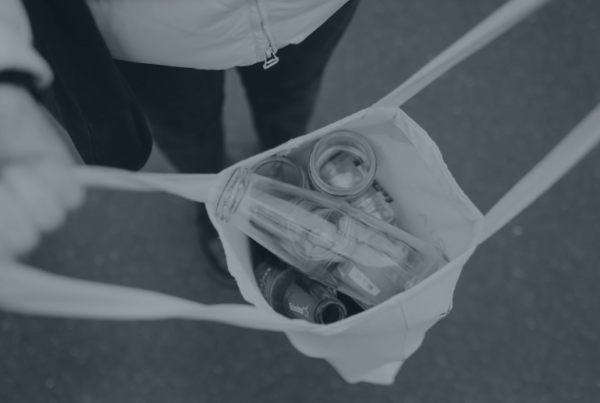GenAlpha
Could Gen Z or Gen Alpha be the first truly “native sustainable” generation?
Each generation of workers comes with its own name or letter of the alphabet, such as Baby Boomers, Gen X, Millennials / Gen Y, Gen Z, and Gen Alpha. Plenty of research and articles are available on each generation. Today, I’d like to focus on Gen Z and Gen Alpha and their relationship with sustainability.
Let’s start with Gen Z, the generation that was born between 1995 and 2010.
Research featured in an article by the World Economic Forum states that Gen Z, “the first generation of ‘digital natives,’ shows the most concern for the planet’s well-being and influences others to make sustainability-first buying decisions.”
According to the article, Gen Z cares more about sustainable buying decisions than brand names. They are also inspiring other age groups to act more sustainably. For instance, their insistence on making values-based sustainable choices has influenced their Gen X parents, who are now also making more sustainable choices.
But is Gen Z the generation that will save the planet?
Probably not, for the reasons stated in the World Economic Forum article, “The main reasons for consumers not adopting a more eco-friendly lifestyle are a lack of interest because they think it’s too costly or insufficient information.”
These research results align with research we at Old Surfer conducted with Hamilton Global Intelligence and CINT.
Does this mean that Gen Alpha will be the first native sustainable generation?
Mark McCrindle first coined the term Generation Alpha. In his article, The Future of Sustainability for Gen Alpha, he states that sustainability will be at the forefront for this generation. He says, “Growing up, Generation Alpha will have access to more information and will increasingly be faced with the importance of sustainability, more than any generation before them, even more than Generation Z. For today’s young people, sustainability has become a lifestyle through purchasing and consuming products that avoid harming the environment as well as choosing products that are good for their own wellbeing.”
Research from the Annie E. Casey Foundation states that, “Pre-pandemic, experts projected that Generation Alpha kids would follow in the activist footsteps of Generation Z and keep sustainability near the top of their priority list. Now, COVID-19’s radical reset of societal norms could further intensify this age group’s interest in reimagining a greener, healthier world.”
Dayna Winter states in her article, Generation Alpha: Everything Brands Need To Know, that Gen Alpha feels a deep responsibility to reverse the damage of past generations. Quoted in the article is Abdaal Mazhar Shafi, serial entrepreneur, milennial, and co-founder of UpstartED, an organization empowering equity-seeking, marginalized, and at-risk youth to discover their potential and make an impact. He shares the following insights from his work with Gen Alpha.
“These kids are starting to feel that they’re the ones who are going to suffer because of the consequences of inaction. They want to move quickly. We talk about sustainability, climate, nutrition, work, gender diversity, and race. These are topics that they bring up themselves,” says Abdaal. “They want to shed light on these issues that have been overlooked or even silenced in some ways to try to improve life for all.”
Abdaal says that his and older generations came to their feeling of responsibility for protecting the planet later in life. In contrast, he says that “These kids have had it from day one.”
Now that we have a sense of the relationship that Gen Z and Gen Alpha have to sustainability, I’d next like to consider the current state of affairs regarding the efforts of corporations and brands to respond to the rapidly growing importance placed on sustainability by consumers.
My observations are based on years of guiding corporations as they seek to adapt to consumer demands for sustainable products.
I’ve seen that major multinational corporations have been investing in the development of more sustainable products. While they have the goal of meeting the UN Sustainable Development Goals, the speed of transformation varies from one corporation to another. One challenge in this process is consumers who are unwilling to pay more for sustainable products, meaning that the extra cost of transformation will not be fully passed on to the consumer. With changing learning curves, simplification of these processes, and innovative solutions over the next few years, this transformation will happen faster, resulting in more sustainable products at lower prices.
The following factors will bring us as close as possible to the birth of our first Native Sustainable Generation. Lower product prices for the consumer. More detailed product information specifically related to sustainability. Effective digital communication of this information. We need to understand the context of this generation, which has felt acutely the social, educational, emotional, and health impacts of the pandemic. All of this means developing more specialized marketing that connects the corporations with the insights and behaviors of the largest consumer population in history, Gen Alpha.
In the next and final article in this series, we’ll explore the relationship between brands and Gen Alpha.







